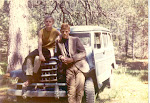
While reading Bolter's book I am drawn to certain simple words such as "space" and "control." The space extends into the nether regions of cycling cyber pages. And to truly appreciate the changeling technology of online "literature" the reader must willingly relinquish his/her control. In chapter five Bolter addresses the concepts and confines of both books and the possible new face of literature: the electronic book. Mainly, Bolter is exercising the idea that unlike books the data in an electronic book and/or written online document very purposefully lacks closure. For instance, let us say that I wanted to read a book via online. Regardless of whether the book was published specifically for (or by) the World Wide Web or if it is John Steinbeck's East of Eden in a pdf file, the outcome for the reader is the same: an unending circuit of information following the close of the story. An example would be the links posted at the end depicting websites where one could buy the book, read criticism online, or something as random as being redirected to a website for carpet cleaner or chewing gum (though I have yet to come across a website for bubble gum). All things at one point in time where an invention- were shiny and new. Bolter points out that even the ancients had to change from writing information on rolls to finally divining an actual book. The origin of books gave way to a change in verbal communication, and so on and so forth.
The more things change, the more they stay the same. Our culture has never ceased changing and inventing new ways to grow and alter our brains (it's the beauty of a collective unconscious). Bolter uses the term "refashion." The term accurately describes the changing face of literature, print, and written media. Suddenly, we no longer crave a sense of peaceful closure to the story- but instead we have re-routed our brains to desire an ad infinitum of knowledge.





Caitlin: Fantastic, thoughtful post--you are absolutely right in the assertion that we have "re-routed" our brains to accommodate new knowledge (as we discussed today, we cannot hold onto the idea that knowledge is quantifiable).
ReplyDeleteOh, and here's the site for Wrigley's Hubba Bubba: http://www.hubbabubba.com/hbw/index.do?x_original_url=http://www.bubblegum.com
(It is, in fact, a pretty elaborately designed hypertext itself.)